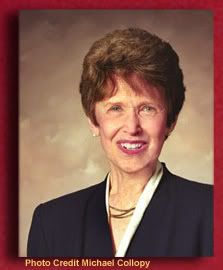“Many of our economic habits were shaped by a warped story of human nature and an economic double standard that gives little or no value to the essential work of caring and care giving. The measures of productivity we habitually use include market activities that harm our health and natural environment while assigning no value to the life-supporting activities of households and nature. The money that central banks and circulate bears little relation to any tangible assets. Quarterly corporate reports fail to factor in the health and environmental damage a company’s products or activities cause. Government policies, too, are often based on fantasies rather than realities, as dramatically shown by the George W. Bush administration’s denial of the urgent need to take action against global warming.Eisler is the author of five books, including her international bestseller, The Chalice and the Blade: Our History and Our Future. She was born in Vienna, fled from the Nazis with her parents to Cuba and later emigrated to the United States. An attorney and longtime social activist, among Eisler’s honors are inclusion as the only woman among twenty illustrious thinkers including Hegel, Adam Smith, Karl Marx and Arnold Toynbee in Macrohistory and Macrohistorians. She received this honor in recognition of her work as a cultural historian. Eisler obtained degrees in sociology and law from the University of California, taught pioneering classes on women and the law at UCLA. She is a founding member of the General Evolution Research Group (GERG) and the Alliance for a Caring Economy (ACE). She serves as a commissioner of the World Commission on Global Consciousness and Spirituality with the Dalai Lama, Archbishop Desmond Tutu and other spiritual leaders. Eisler is also the co-founder of the Spiritual Alliance to Stop Intimate Violence (SAIV) and president of the Center for Partnership Studies that promotes initiatives to advance a way of life based on harmony with nature, nonviolence, and gender, racial, and economic equity. Eisler agreed to a podcast interview with me about her life, book, and worldview. CLICK HERE TO LISTEN TO THIS PODCAST. |
Sunday, May 6, 2007
Building A New Paradigm: A Podcast Interview With Riane Eisler
Posted by
Robert Ellman
at
4:40 PM
![]()
Labels: Adam Smith, capitalism, Friederich Engels, Karl Marx, Riane Eisler, socialism, The Chalice and the Blade, The Real Wealth of Nations
Subscribe to:
Post Comments (Atom)









0 comments:
Post a Comment